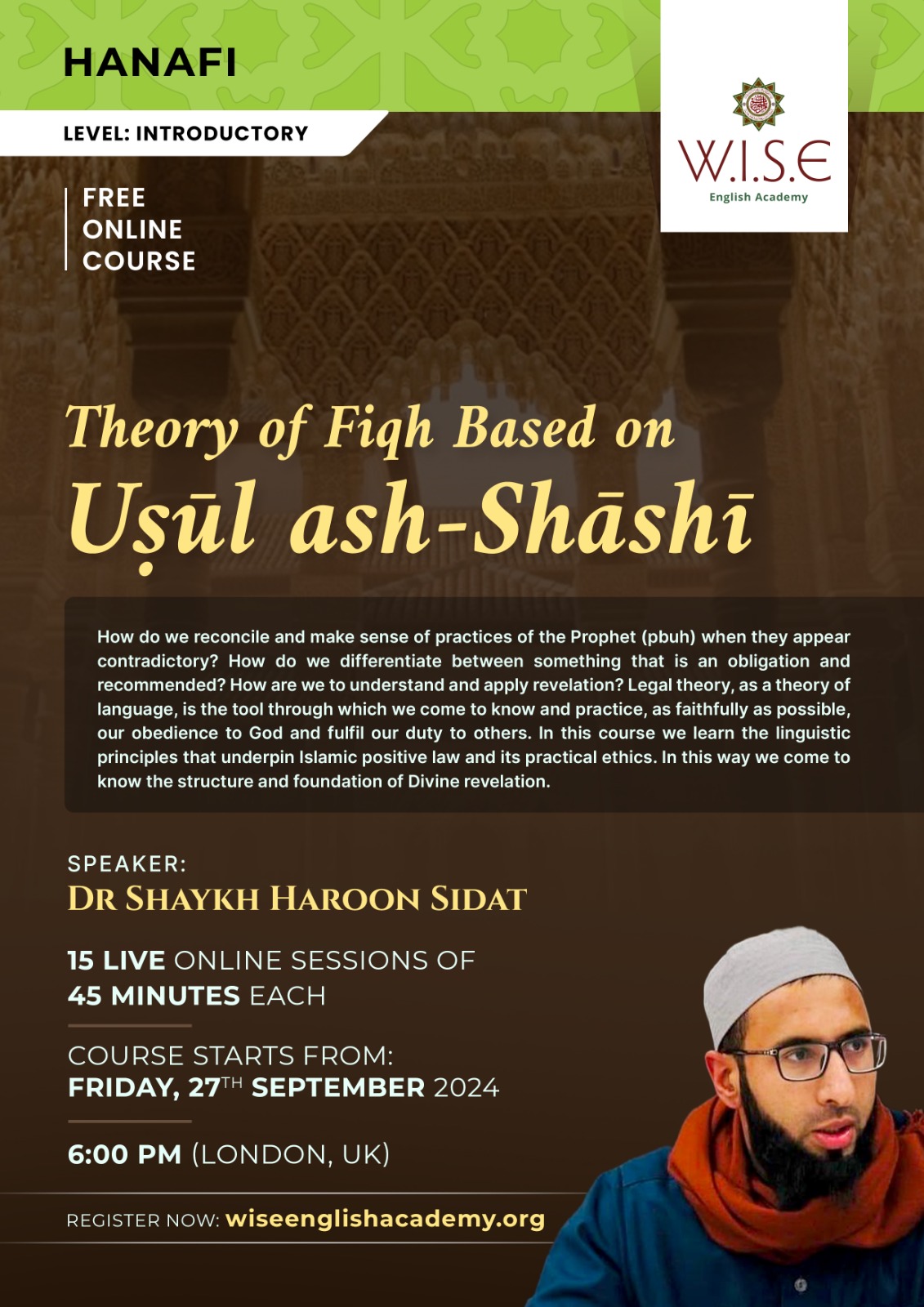Islamic jurisprudence (usul al-fiqh) is the theoretical discipline that investigates the set of linguistic and inferential principles by which legal theoreticians or jurists extract legal rulings from the primary texts of the Qur’an and Sunna. This course offers a comprehensive introduction to The Principles of Islamic Jurisprudence written by Abū Isḥāq b. Ibrahim al-Shashi or better known as Nizam al-Din al-Shashi (d. c. 7th/13th). It will include a full reading of the original Arabic with translation followed by general explanations of it that include important and relevant points about legal theory as well as applications to cases of positive law (fiqh). It is an introductory to intermediate level course, although advanced students or specialists will benefit from it as well.
Objectives and learning outcomes of the course
On successful completion of this course, students will:
- have acquired a good understanding of the core jurisprudential principles of the post-classical Ḥanafī period
- have gained a good understanding of the way jurisprudential principles are applied to deduce legal rulings or adjudicate conflicting rulings.
- have gained familiarity with the core evidences and strengths of the Ḥanafī principles jurisprudence;
- have acquired a critical appreciation of the approach and legal methodology of Imam al-Shashi.

